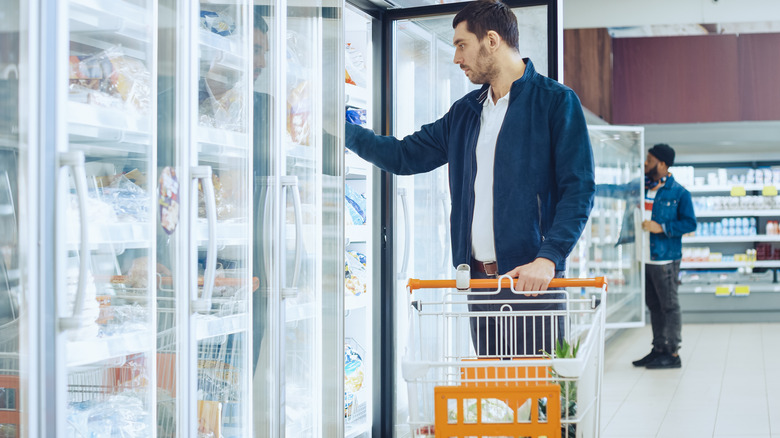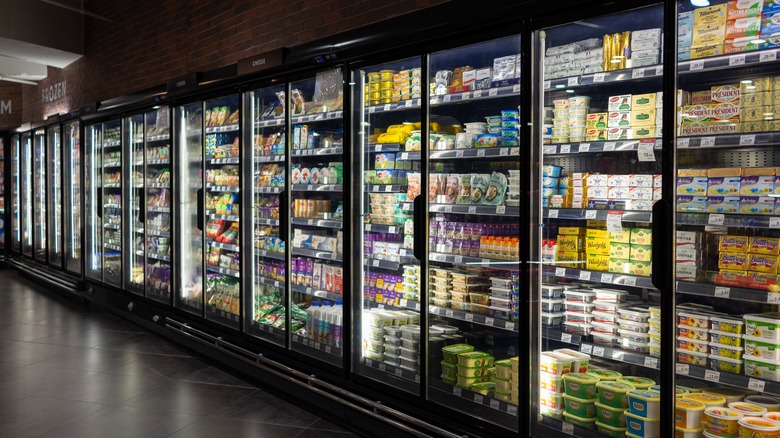Why You Should Avoid Returning An Unwanted Grocery Store Item To The Freezer
While grocery shopping is rarely on people's list of beloved activities, there are lots of ways you can make the process more tolerable for all involved. For instance, it's never a good look to block an entire aisle with your cart while you scour the shelves for your favorite brand of pretzels. In the same respect, try to keep a polite distance from other shoppers, especially when you're in line. And please, for the love of all that's good, don't leave the checkout line to get another item and return like nothing ever happened.
These tips ensure other shoppers have a pleasant experience, but what about the store staff? These individuals work diligently to provide customers with quality service, so it doesn't hurt to return the favor. In addition to basic politeness, such as saying please and thank you, grocery store workers also request that customers avoid a seemingly polite practice — one that can actually be detrimental when it comes to food safety. Here's why you shouldn't return frozen items to the freezer.
When in doubt, confer with a staff member
During a hectic grocery store run, second-guessing is pretty common. For instance, you may decide to pick up a new brand of ice cream, only to regret the decision later as you're still shopping. In this case, you may have the impulse to return the item to the freezer where you found it in an effort to make things a little easier for the employees.
While your heart is in the right place, returning frozen goods to freezers after selecting them can cause some complications. Remember that grocery stores must follow certain rules when it comes to frozen goods. Namely, they must ensure frozen items aren't out of the freezer for too long, or they may need to discard the item due to food safety concerns. The item will begin to defrost as soon as it's placed in your cart, and at a certain point it will no longer be safe to eat. That's why grocery store staff encourage shoppers to give the item to them, along with a general estimate of how long it's been outside of the freezer. Doing so can spare another customer from inadvertently selecting an unsafe item.
Why frozen food must be stored correctly
If the rules regarding frozen food and grocery stores seem arbitrary, keep in mind that these regulations have been enacted to preserve the health and safety of all customers. Improperly stored frozen food will lack the quality of correctly stored items, but it can also lead to serious bouts of foodborne illness. On the other hand, cold conditions reduce the rate at which bacteria grow, which keeps foods safer for longer. When perishable items reach temperatures between 40 degrees F and 140 degrees F, they have a much higher chance of harboring bacteria. This is known as the "danger zone," and foods within this range can cause significant health effects.
E. coli and C. botulinum are just two of the many forms of bacteria that cause foodborne illness, but they can be avoided by implementing the two-hour rule. This rule states that items requiring refrigeration have about two hours of being exposed to room temperatures before they become dangerous. This typically includes foods like eggs, meat, and vegetables, along with many others. In addition to abiding by the two-hour rule when it comes to home food storage, you can also help your local grocery store protect others by using the proper etiquette when shopping.


